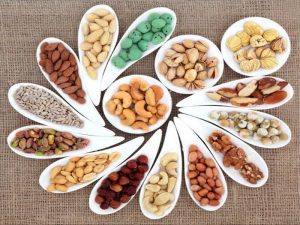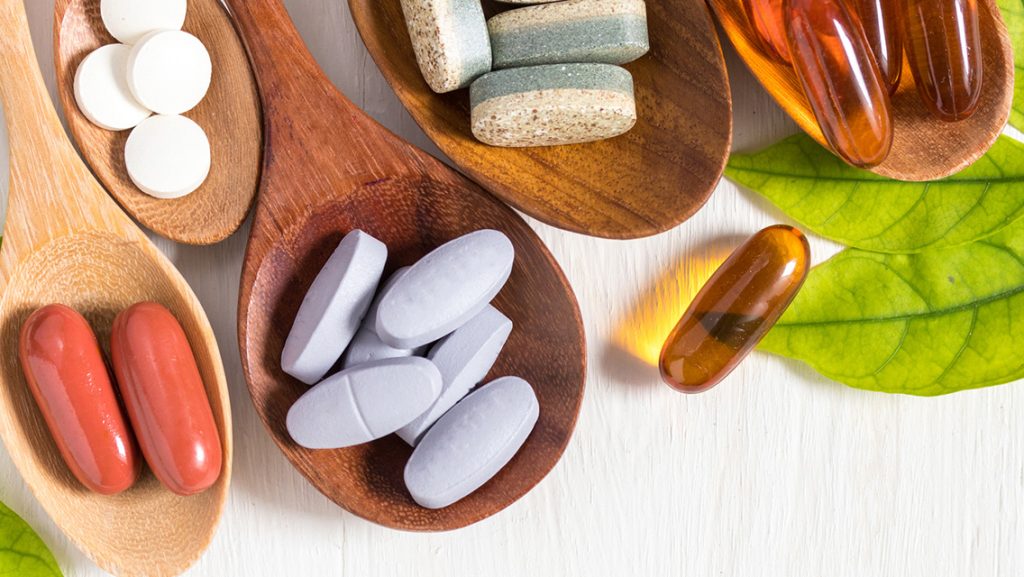Uncategorized
What Are the Top Supplements for Enhancing Immunity?
What Are the Top Supplements for Enhancing Immunity?
A strong immune system is essential for protecting your body from illnesses and infections. While a healthy diet, regular exercise, and good sleep are crucial for maintaining immune health, supplements can provide extra support when needed. Whether you’re looking to boost your immunity during cold and flu season or to maintain overall health, certain vitamins, minerals, and herbal supplements can help keep your immune system functioning optimally.
In this article, we’ll explore some of the top supplements for enhancing immunity and explain how they can help protect your body against pathogens.

1. Vitamin C
The Immune Booster
Vitamin C is perhaps the most well-known supplement for boosting immunity. This powerful antioxidant helps stimulate the production of white blood cells, which are essential for fighting off infections. Additionally, vitamin C strengthens the skin’s defense system and supports the healing process.
How It Works:
- Antioxidant Properties: Vitamin C protects cells from damage by neutralizing harmful free radicals, which could weaken immune function.
- White Blood Cell Support: Vitamin C boosts the production of white blood cells and enhances their ability to fight off infections.
How to Incorporate:
- The recommended daily dose of vitamin C is typically between 500 mg and 1000 mg for immune support.
- You can take vitamin C in the form of tablets, capsules, or chewables, or opt for powdered forms that can be mixed with water.
2. Vitamin D
The Sunshine Vitamin
Vitamin D plays a crucial role in supporting the immune system. It helps modulate the immune response and promotes the production of antimicrobial proteins that can kill harmful pathogens. Research suggests that a deficiency in vitamin D can increase the risk of infections, including respiratory illnesses.
How It Works:
- Immune Regulation: Vitamin D activates and strengthens the pathogen-fighting immune cells like T-cells and macrophages.
- Reduces Inflammation: By regulating inflammation, vitamin D helps prevent the immune system from overreacting to infections.
How to Incorporate:
- Ideally, get around 1000 IU to 2000 IU of vitamin D daily to maintain optimal immune function.
- Vitamin D supplements are available in soft gels, tablets, and drops. You can also get vitamin D from fortified foods, such as milk and cereals, or through moderate sun exposure.
3. Zinc
The Mineral for Immune Strength
Zinc is a vital mineral that supports immune cell function, enhances wound healing, and helps your body fight infections. Zinc is involved in various aspects of the immune system, including cell signaling and inflammation regulation.
How It Works:
- Cell Function: Zinc is necessary for the development and function of immune cells, including neutrophils and T-cells.
- Antiviral Activity: Zinc has been shown to inhibit the replication of certain viruses, making it an essential nutrient for preventing infections.
How to Incorporate:
- Zinc supplements are commonly available in doses of 15-30 mg daily.
- You can also include zinc-rich foods in your diet, such as oysters, red meat, beans, and nuts, but supplementation can help if you’re not getting enough from your diet.
4. Elderberry
The Herbal Immunity Booster
Elderberry is a popular herbal supplement known for its antiviral properties. It’s often used to prevent or treat colds, flu, and other viral infections. Studies suggest that elderberry can reduce the duration and severity of cold symptoms and may also help enhance the immune system.
How It Works:
- Antiviral Properties: Elderberry contains flavonoids and anthocyanins, compounds that have been shown to inhibit the replication of viruses, particularly the flu virus.
- Anti-inflammatory Effects: Elderberry helps reduce inflammation, which can promote a healthy immune response.
How to Incorporate:
- Elderberry supplements are available in syrup, capsule, and tablet forms. A typical dosage is 300 mg to 500 mg of elderberry extract, taken once or twice daily.
- Elderberry is also available as a juice or in teas, but supplements offer a more concentrated dose for immune support.
5. Echinacea
The Herb for Immune Support
Echinacea is a widely used herb that has been shown to reduce the severity and duration of colds and respiratory infections. It’s believed to stimulate the immune system, making it more effective at fighting off invaders.
How It Works:
- Immune System Stimulation: Echinacea activates various immune cells, including macrophages, which help clear infections from the body.
- Antioxidant Properties: It contains compounds that fight oxidative stress, which can damage immune cells and impair their function.
How to Incorporate:
- Echinacea is typically taken in the form of tablets, capsules, or teas. The recommended dose varies, but a typical daily dose is 300-500 mg of echinacea extract.
- To maximize benefits, take echinacea at the first signs of a cold or infection for immune boosting.
6. Probiotics
Gut Health and Immunity
Probiotics are beneficial bacteria that support gut health, which plays a major role in immune function. A large portion of the immune system is housed in the gut, and maintaining a healthy balance of gut bacteria can enhance immune responses.

How It Works:
- Gut-Immune Connection: Probiotics help promote the growth of beneficial bacteria in the gut, which can stimulate the production of immune cells like T-cells and B-cells.
- Reduce Inflammation: Probiotics help regulate inflammation in the gut, which is crucial for overall immune function.
How to Incorporate:
- Look for probiotic supplements that contain strains like Lactobacillus and Bifidobacterium. A daily dose of 5 to 10 billion CFUs (colony-forming units) is generally recommended.
- Probiotics are also found in fermented foods like yogurt, kefir, kimchi, and sauerkraut.
7. Garlic
Nature’s Antibiotic
Garlic has long been used as a natural remedy for colds and infections. It contains allicin, a sulfur compound with potent antimicrobial and anti-inflammatory properties. Garlic can help activate immune cells and improve the body’s defense against harmful pathogens.
How It Works:
- Antimicrobial Properties: Garlic’s allicin has been shown to kill bacteria, fungi, and viruses, helping prevent infections.
- Immune System Activation: Garlic stimulates white blood cells and enhances their ability to fight infections.
How to Incorporate:
- You can take garlic supplements, or simply add fresh garlic to your meals.
- Garlic supplements typically come in doses of 500 mg to 1000 mg of standardized garlic extract.
8. Vitamin A
The Vision and Immunity Vitamin
Vitamin A plays a critical role in maintaining the health of the skin and mucous membranes, which are the body’s first line of defense against pathogens. It also supports the production of immune cells, helping the body fight off infections.
How It Works:
- Immune Cell Support: Vitamin A helps regulate the production of white blood cells and supports the body’s immune response.
- Barrier Function: Vitamin A helps maintain the integrity of the skin and mucous membranes, which act as barriers against infection.
How to Incorporate:
- Vitamin A can be taken in supplement form (typically 5000 IU per day) or through foods like carrots, sweet potatoes, and leafy greens.
- Beta-carotene, the precursor to vitamin A, is commonly found in plant-based foods and can also help support immunity.
Conclusion
Enhancing your immunity requires a combination of a healthy lifestyle and the right supplements. The supplements mentioned above, including vitamin C, vitamin D, zinc, elderberry, echinacea, probiotics, garlic, and vitamin A, are some of the top options to consider for immune support.
Remember, supplements should complement a well-balanced diet and other health habits, such as staying hydrated, managing stress, and getting regular exercise. If you’re considering taking any new supplements, especially if you have underlying health conditions or are on medication, be sure to consult with a healthcare professional for personalized advice. By combining these immune-boosting strategies, you can help ensure that your body is well-equipped to fight off infections and stay healthy.


